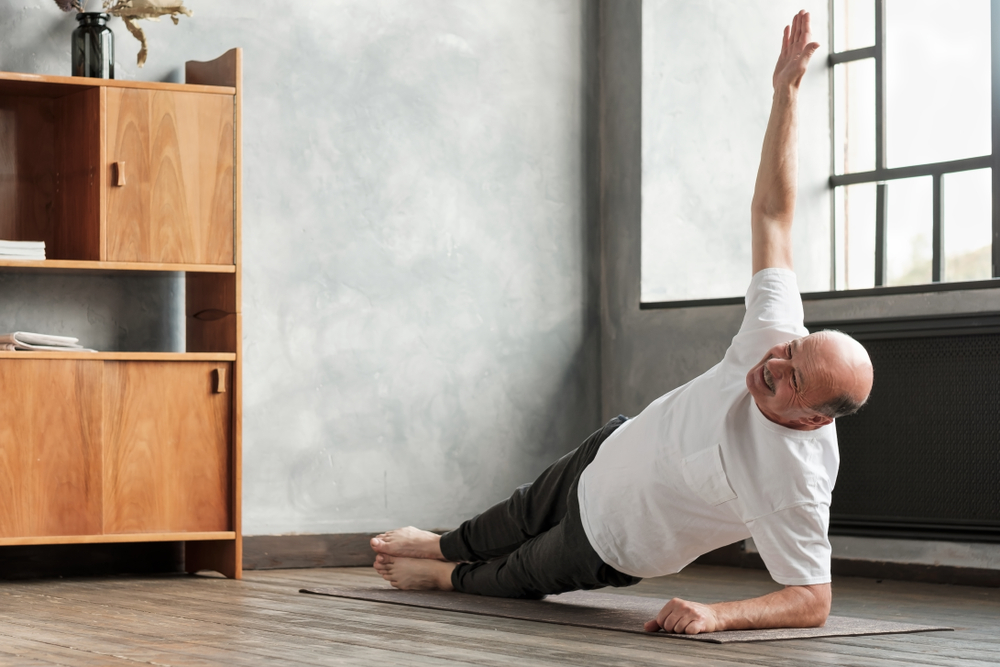Regular physical activity offers a range of health benefits, from improved longevity, increased strength, and endurance, to a reduced risk of many chronic illnesses, including cancer.
There is convincing evidence that regular physical activity is linked to the improved physical and mental well-being of cancer patients. In fact, doctors are encouraging cancer patients to be more physically active during their cancer journey.
Though exercise is beneficial for cancer patients, it seems daunting for lung cancer patients as they have trouble with breathing even while resting.
Over the past few years, studies have shown that exercise has several benefits for lung cancer patients and survivors. A well-designed exercise program can offer improvement in patient-reported outcomes including cancer-related fatigue.

Exercise program for lung cancer patients
In lung cancer patients, several factors may contribute to an impaired exercise capacity. Physical activity could be dangerous for lung cancer patients who have:
- severe anaemia
- a compromised immune system
- severe fatigue
- balance issues or weakness
Before opting for an exercise program, a lung cancer patient must always be assessed or screened for exercise safety and would need to have a medical clearance, regardless of the type of exercise program. This helps the patient to obtain maximum benefits from exercise and minimize the harmful effects of the cancer treatment.
An exercise program for lung cancer patients must commence and progress slowly, especially when the patient has had a sedentary lifestyle prior to the diagnosis. A lung cancer patient must start exercising under the supervision of a Physiotherapist in a safe environment.
Difficulty with breathing is the main factor that prevents lung cancer patients from being physically active. So, lung cancer patients who have never exercised before must begin their exercise program with breathing exercises.
Breathing exercises will help in maintaining the oxygen flow and building endurance.
In addition to physical health, lung cancer patients who exercise regularly are reported to have a great improvement in the mental and emotional health. Patients who exercise during and after cancer treatment reported an increase in the quality of life.
Exercise interventions
Although it is not clear which specific exercises have the greatest benefits, breathing exercises, stretching, aerobic exercises, and strength training interventions are preferred.
Breathing exercises
One of the most distressing symptoms of lung cancer is difficulty with breathing, which may make the patient out of breath or to feel tightness in the chest with physical activity, or even while resting.
Diaphragmatic breathing through pursed lips is the recommended breathing exercise for lung cancer patients. Diaphragmatic breathing allows more air to move in and out of the lungs without fatiguing the chest muscles, thereby strengthening the diaphragm.
Practice diaphragmatic breathing by following these steps:
- In a sitting or standing position, inhale through the nose so that your abdomen will move out against your hands placed over the abdomen.
- Exhale slowly through pursed lips(tightly pressed lips) while gently pushing inward and upward with the hands placed on the abdomen to help completely empty the lungs.
- Slowly inhale through the nose ,filling your lungs with air.
- Repeat this exercise several times a day.
Stretching
Stretching exercises for the upper body improves mobility of the chest and the back. It also helps the diaphragm to expand more freely, thus increasing lung capacity.
It encourages deeper breathing, improves circulation, and helps in managing shortness of breath. Also, it is one of the ways to manage stress and anxiety in lung cancer patients.
Performing stretching exercises daily improves the range of motion and flexibility. One can try the following exercises- shoulder stretch, triceps stretch, and standing side stretch.

Standing side-stretches
Aerobic exercise
Daily aerobic exercise is a recommended way to improve fitness. During aerobic exercise, you breathe faster and deeper, taking more air into and out of the lungs. Aerobic exercises improve oxygen capacity.
Low-intensity exercises, such as walking, are the best way to begin. You can start by walking around a room in the house, resting, and then walking around again.
As you feel more confident, try to slowly increase the distance to reach a goal to exercise for about 150 minutes a week.
To increase your aerobic activities, you can climb the stairs or can even participate in activities that you can enjoy, such as dancing.

Squats
Strengthening exercises
These exercises help to build muscles that are weakened due to cancer treatments such as chemotherapy and radiation therapy. It can also help improve your balance, posture, and increase bone strength.
A good way to start strengthening exercise is to begin in small increments of ten minutes at a time depending on the fatigue level and then set goals and progress slowly. Bicep curls, knee bends, heel raises are the recommended exercises for beginners.

Bicep curls
Factors affecting exercise performance in lung cancer patients
The following factors may limit a lung cancer patient’s ability to exercise :
- Fear of symptom exacerbation
- Cancer cachexia (loss of fat and muscle mass)
- History of cardiac diseases
- History of concomitant lung diseases, such as COPD
- Ageing
Tips for exercising safely with lung cancer
The following tips may help lung cancer patients to exercise safely:
- Always listen to your body and do not pressurize yourself. Remember, exercise is important, but you need to be safe.
- Start slowly and gradually increase the intensity of your workouts.
- Choose activities that you enjoy.
- Stick to your exercise routine more consistently.
- Practice yoga as it helps you develop better posture and increase lung capacity, which will make other exercises much easier.
- Make sure that you do a warm-up, stretches, and cool down with each exercise session.

Balancing and Yoga
Not sure where to start? Ask your oncologist and physiotherapist to measure your fitness level and to create a comprehensive plan, guidance, and care to meet your goal.
You can also know more about what foods are good for your lungs here.



